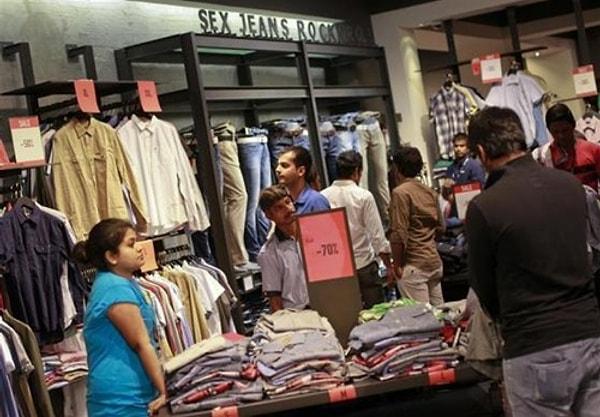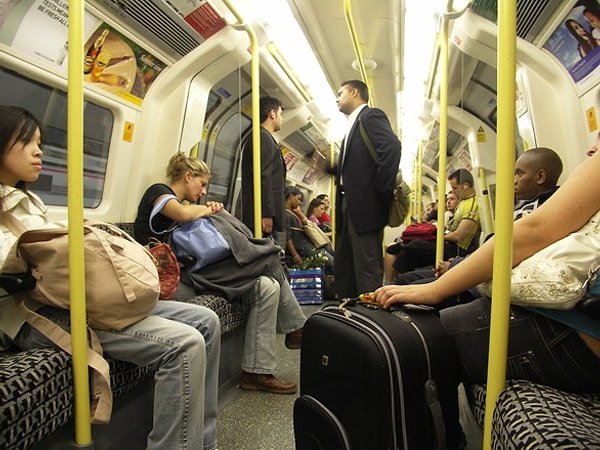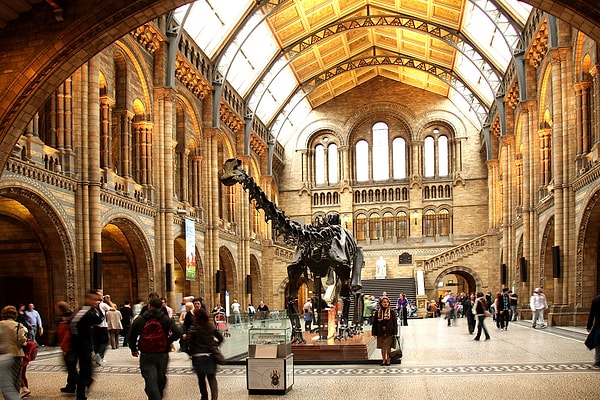Top 5 Industries People Counting Will Transform
1. Retail

There is no denying that shopping online has its benefits and it is getting bigger regularly. Gathering information to compare your options and having your order delivered to your home by a few clicks while sitting on your chair and taking a sip of French press coffee is definitely convenient; especially after a long day.
However majority of customers still prefer to shop from an actual store maybe because they don’t want to pay delivery fees or receive the item at the time of the purchase or maybe just for the sake of experience itself. Brick-and-mortar stores still
dominate the market when it comes to sales volume but online/mobile shops are on a sound pace, trying to catch up. Online/ mobile shops have one crucial item in their tool box, that actual stores lacked until a few years ago and that is
their ability to obtain relevant business metrics (not raw data) in order to make well informed decisions. If brick-and mortar stores want to stay competitive or have consistent Omni channel strategies they should embrace people counting as a tool.
People counters enables you to:
· CALCULATE the conversion rates of each store by knowing how many of your visitors actually generate your sales.
· BOOST your marketing effectiveness by measuring which marketing strategies work best for your business.
· INCREASE the total sales and profit margins of your business by identifying the room for improvement in every corner of your performance.
· ENHANCE daily operations and staffing circulation in relation to the number of visitors and their needs. This will eventually increase customer satisfaction and services, which will ultimately drive more traffic into your store.
· IDENTIFY high-performing stores with high conversion rates, and benchmark them for best practice. Also, discover your lowest performing stores and increase their performance accordingly with additional training and support to staff.
· ACCESS accurate data about people count and shopper behaviours in real-time on mobile, and manage your every-day operations accordingly.
There are other industries that can greatly benefit from this technology.
2. Shopping Malls

It would be absurd for shopping malls to just lie back and watch the world spin as retail is going through such changes. Shopping at a mall is a social adventure for visitors but passing through disorderly crowds to reach merchandise and waiting at the never-ending checkout queues might result in boredom and eventually leaving the premises. Measuring traffic data is an essential key performance indicator for shopping malls. Setting up a benchmark between different or in the same mall is quite advantageous as well.
Understanding the opportunities of their spaces, making sure each space is being utilized is compelling to comfort of the visitors and the success of a shopping mall. Gathering scientific data about which rental zones are the hottest gives you a
clear understanding of how to charge each property accordingly. Moreover, traffic data of any given day and time is quite useful when negotiating with current and prospective sponsors.
Security is another important issue in crowded malls and managing your staff according to traffic could make everything easier for everyone.
3. Transportation

Government bodies can be inefficient due to ponderous bureaucracy, so can the public yet it doesn’t mean public transportation should be inefficient. People counting is immenselyinformative for public transportation. More knowledge about transportation patterns could allow administrators to adjust the schedules or increase the busses in a route to meet the demand.
The system can easily answer the questions such as how many people used a certain route in the last month, how many of them got out in certain stops, which stops have the most circulation, at what times of the day should the frequency of trips be increased or is it necessary to have a bus or train make a stop at the last station when the quantity of passengers doesn’t make it cost effective. All in all, it can be said that people counting will change the face of public transportation if integrated correctly and used to its fullest potential.
4. Museums and Libraries

Libraries and museums are under pressure to justify their funding needs and presenting statistics is a critical issue for their goal. People counters are handy to produce accurate reports of the amount of visitors/patrons who enter the library on a daily, weekly, monthly or yearly basis. This information can then act as a foundation for the libraries labor, budget, and service requests while combatting increasing financial pressure.
Also it is important for curators to know if the visitors are satisfied or bored after a tour? Which areas are the most exciting or which are mundane?
With “dwell” data, libraries and museums can develop concrete evidence of their visitors browsing behaviour. Moreover, they can find the best and worst places for their book, media and exhibit displays. Which means they can improve those displays that are lacking, by making them more accessible or placing more effective and efficient signs.
In both cases keeping a track of people traffic can help librarians and curators to make well-informed decisions and apply for government funding.
5. Casinos

Casinos are full of people, some flashier than others and some definitely have deeper pockets than others.Knowing which areas are the most popular can change the way you want to organize things. How many of your visitors are actually playing games, having dinners, staying at your hotel and enjoying the pool.
Answers to these questionsmight change the way you organize things differently in your casino? If your customers use the dining area for mostly having dinner and stay at their hotel room until noon only to miss the breakfast maybe you should focus on adding value to dinner arrangements. You can also arrange your floor set-up based on your customers’ behavioral patterns.
Keşfet ile ziyaret ettiğin tüm kategorileri tek akışta gör!


Yorum Yazın